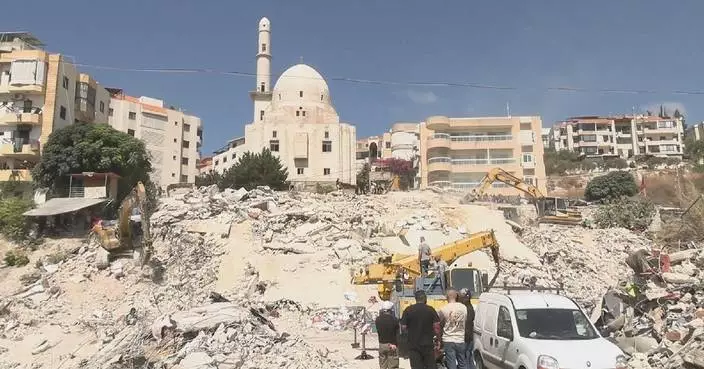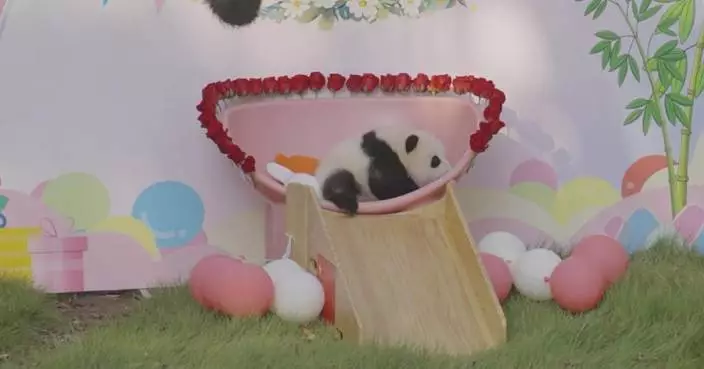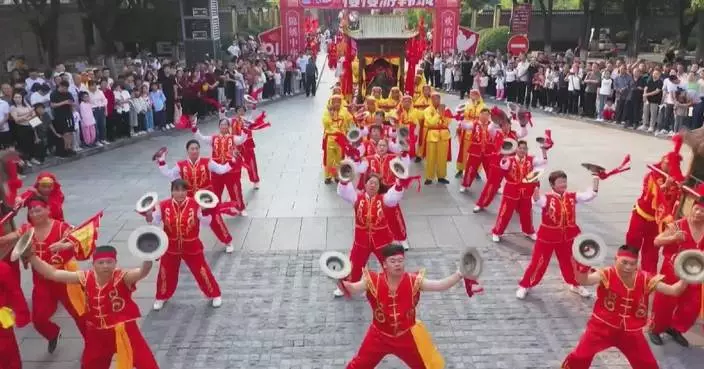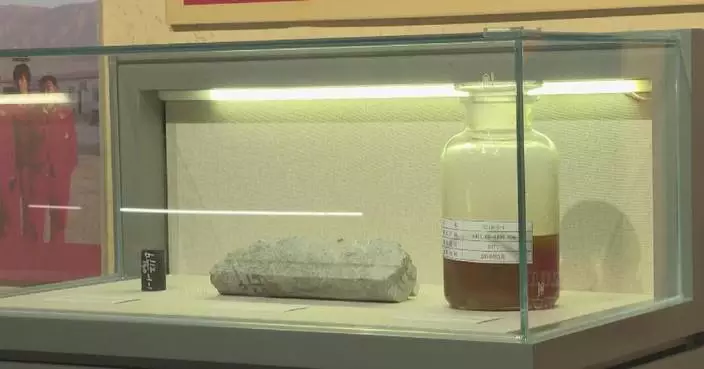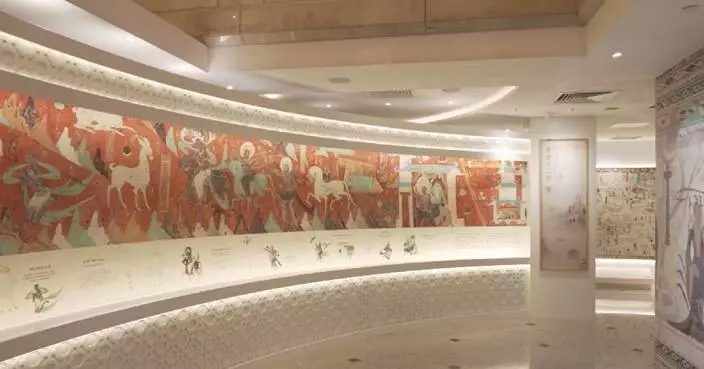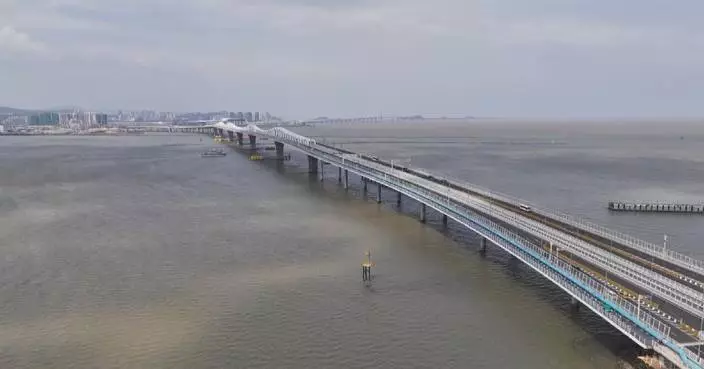The air strikes on Lebanon and the killing of Hezbollah leader Sayyed Hassan Nasrallah, along with Iran's Islamic Revolutionary Guard Corps (IRGC) senior commander Abbas Nilforoushan by Israel, have threatened regional and global peace, to which Iran will respond, according to Iran's Foreign Ministry Spokesman Nasser Kanaani on Monday.
Kanaani made the remarks at a weekly press conference in the Iranian capital, Tehran.
Click to Gallery
The air strikes on Lebanon and the killing of Hezbollah leader Sayyed Hassan Nasrallah, along with Iran's Islamic Revolutionary Guard Corps (IRGC) senior commander Abbas Nilforoushan by Israel, have threatened regional and global peace, to which Iran will respond, according to Iran's Foreign Ministry Spokesman Nasser Kanaani on Monday.
Iran to respond following Israeli killings of Hezbollah, IRGC Leaders
Iran to respond following Israeli killings of Hezbollah, IRGC Leaders
Iran to respond following Israeli killings of Hezbollah, IRGC Leaders
Iran to respond following Israeli killings of Hezbollah, IRGC Leaders
"Iran will not ignore any acts of aggression by Israel. Israel will never escape punishment from regional resistance forces, Iranian forces, and its people after committing a crime. We will take appropriate and decisive actions," said Kanaani.
The spokesman said that the country sees no need for sending auxiliary or voluntary forces to Gaza or Lebanon as regional countries and peoples could defend themselves against Israel.
Kanaani said Iran's patience was out of wisdom and to maintain peace and security in the region and the world, stressing that however, if the country considered it necessary, it definitely would not hesitate to support its national security and regional supporters.
He noted that Iran had not received any request from any party for sending forces.
Israel began extensive deadly airstrikes across Lebanon last week, marking its largest military operation in Lebanon since 2006.
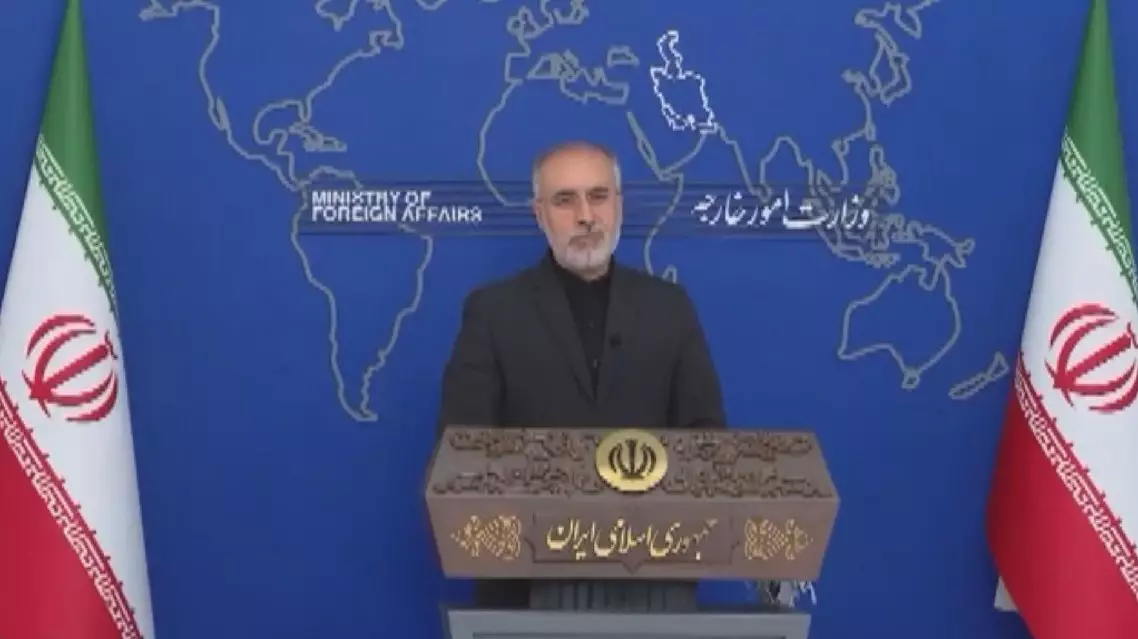
Iran to respond following Israeli killings of Hezbollah, IRGC Leaders
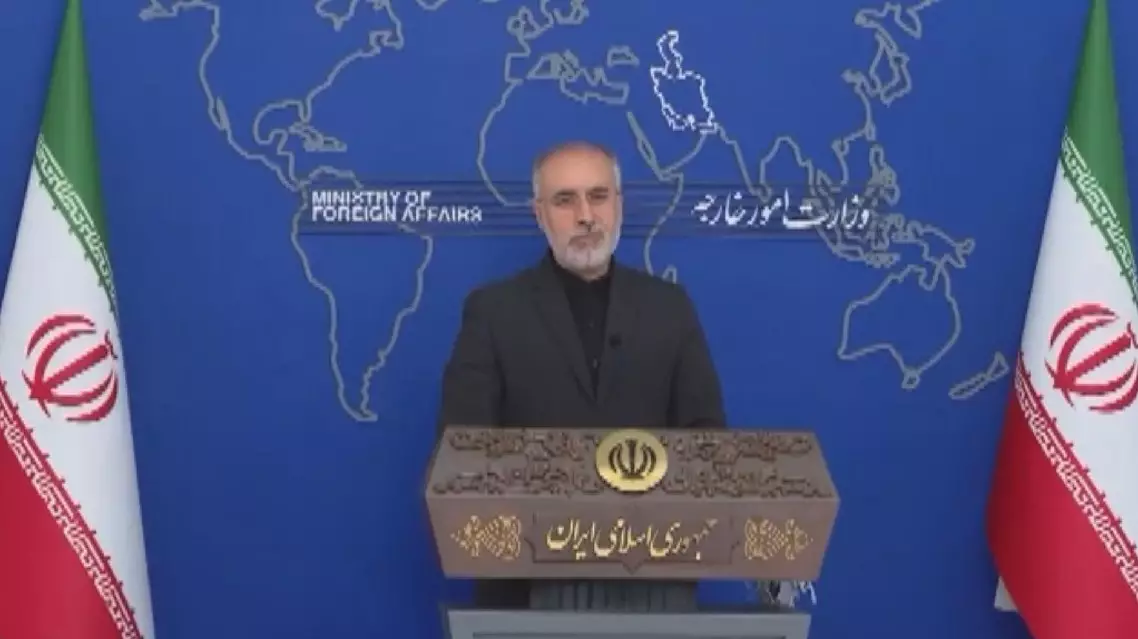
Iran to respond following Israeli killings of Hezbollah, IRGC Leaders
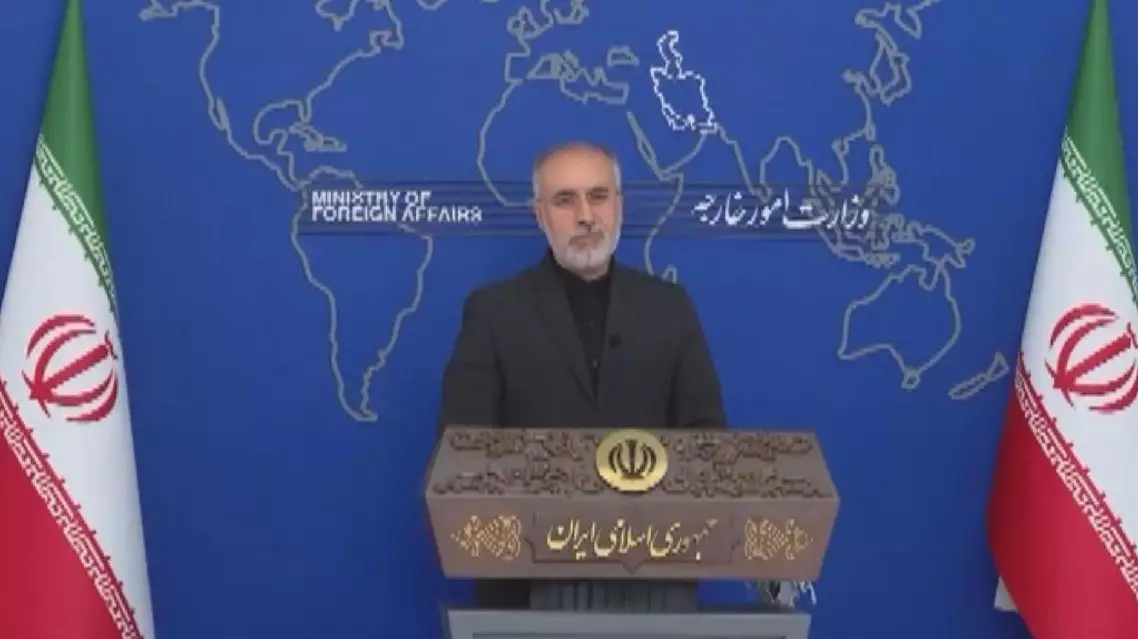
Iran to respond following Israeli killings of Hezbollah, IRGC Leaders
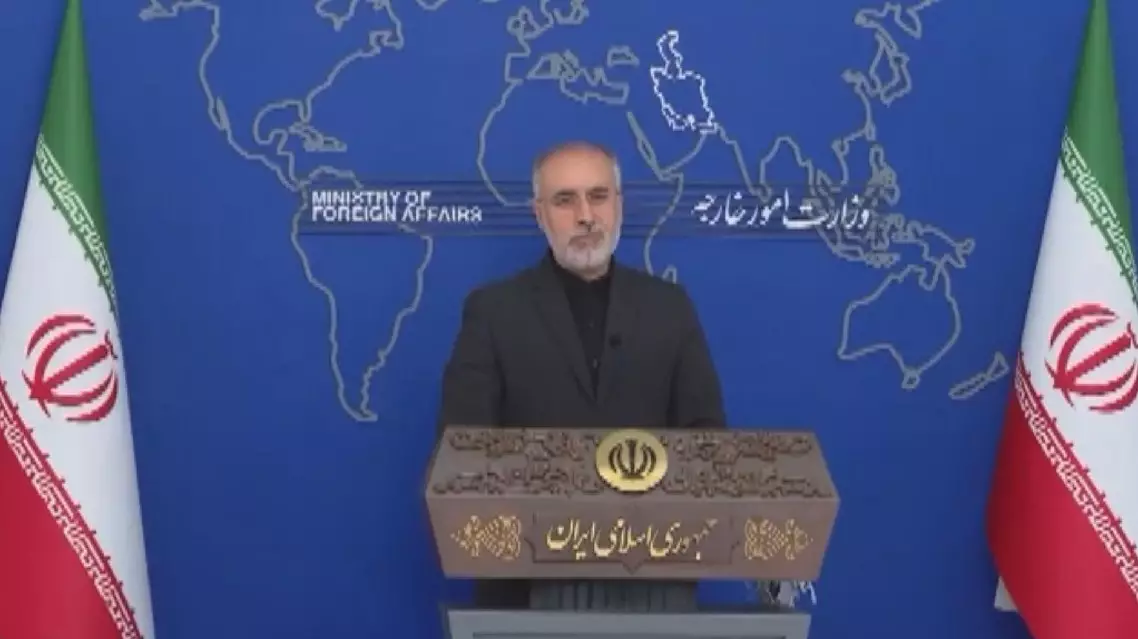
Iran to respond following Israeli killings of Hezbollah, IRGC Leaders
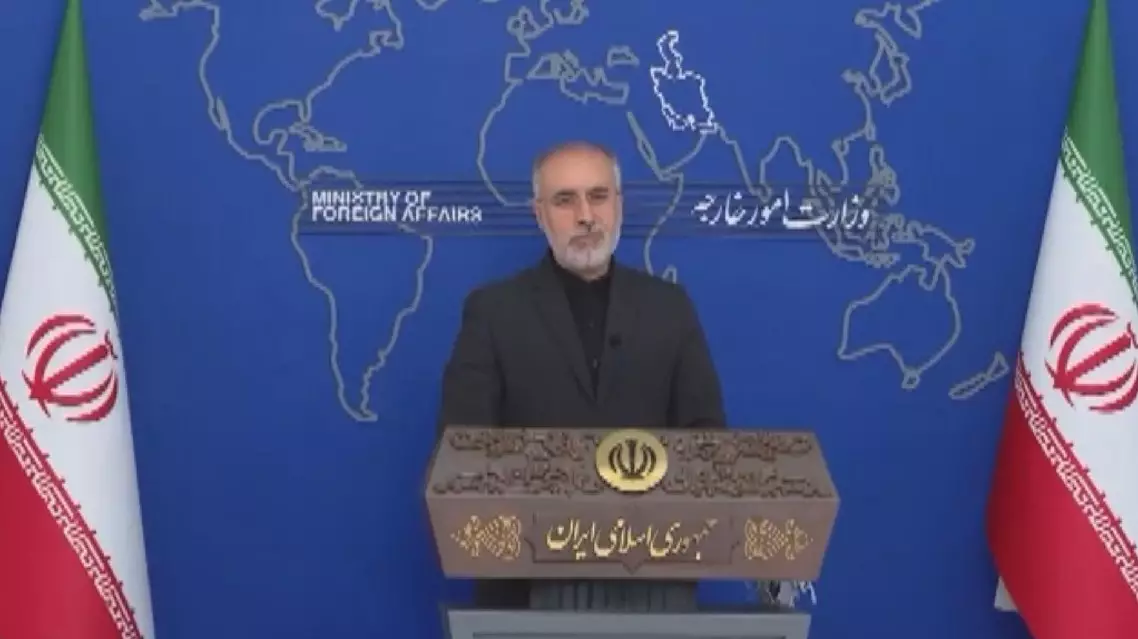
Iran to respond following Israeli killings of Hezbollah, IRGC Leaders
A "green scarf" to prevent desertification in the Taklimakan Desert in southwest China's Xinjiang Uygur Autonomous Region is expected to be completed by the end of this year. Over the past 40 years, a green belt spanning 2,761 kilometers has been established around China's largest desert, the Taklimakan Desert, aptly referred to as the "green scarf". The initiative leverages the country's Three-North Shelterbelt Forest Program (TSFP), so named because it carries out forestation in the north, northeast and northwest regions.
Currently, out of the remaining 285 kilometers of tasks combating desertification, 155 kilometers have been completed in the desert, achieving a completion rate of more than 54 percent. It is expected to complete the final flourish of the "green scarf" by the end of the year.
China has been exploring ways to combat desertification for decades and launched the TSFP in 1978. At present, the large-scale afforestation project, often called the "Great Green Wall" has entered a critical phase.
Since August last year, the country has launched three major battles against desertification under the TSFP, with the project in the Hexi Corridor-Taklimakan Desert region being one of them.
Practices such as planting desert shelter forests and building sand-control barriers have been successfully implemented there.
"Engineering sand control has meant building this straw checkerboard sand barrier. As you can see, both sides of the road are entirely covered with these straw checkerboard sand barriers, which stabilize all the sand and keep the road clear," said Abbas Eysa, head of sand control station in Qiemo County, Bayingolin Mongol Autonomous Prefecture.
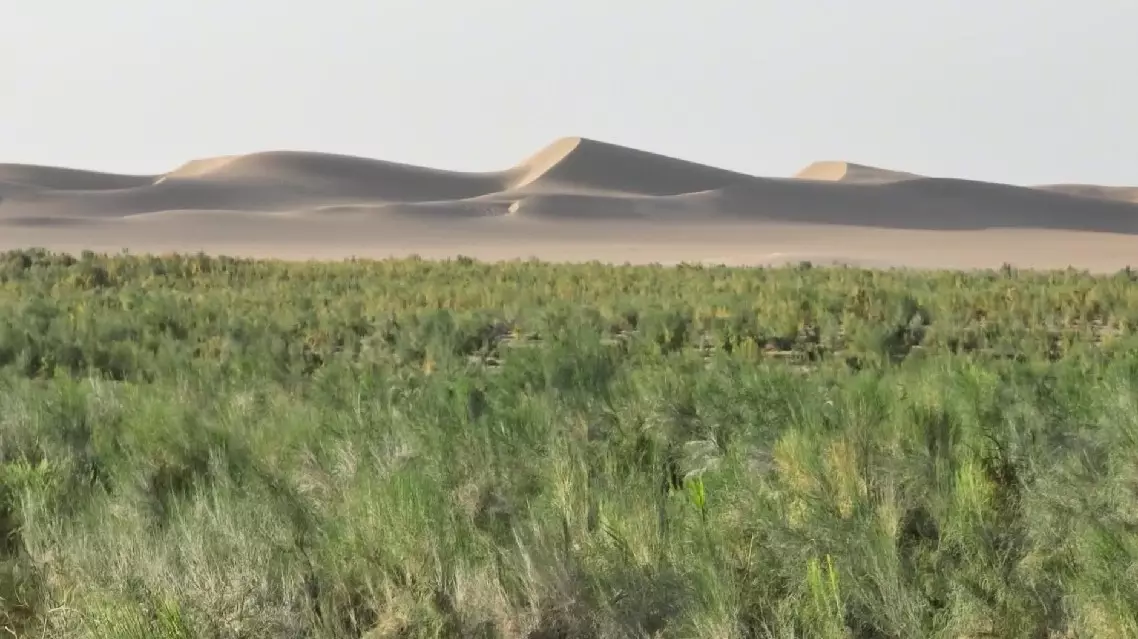
"Green scarf" for fixing sand in China's largest desert to be completed by end of 2024








